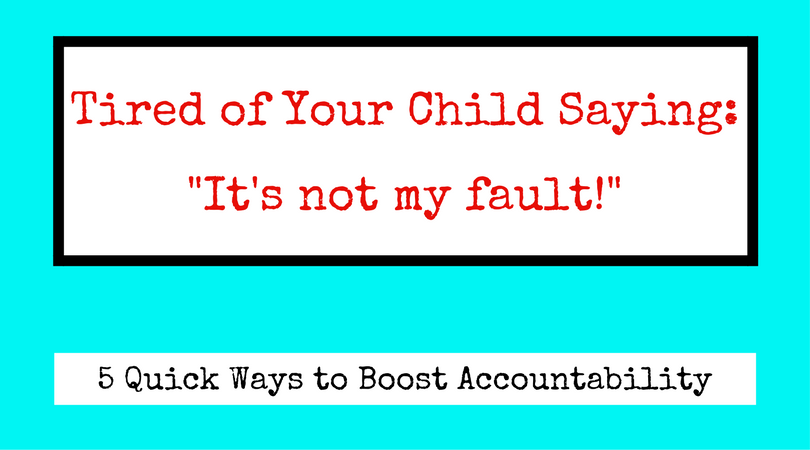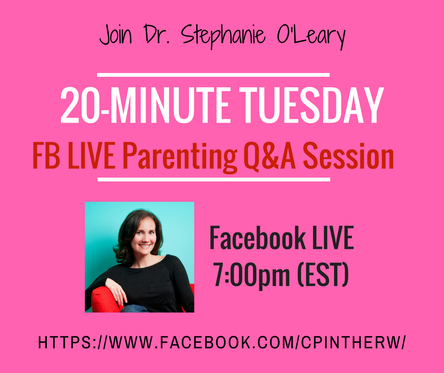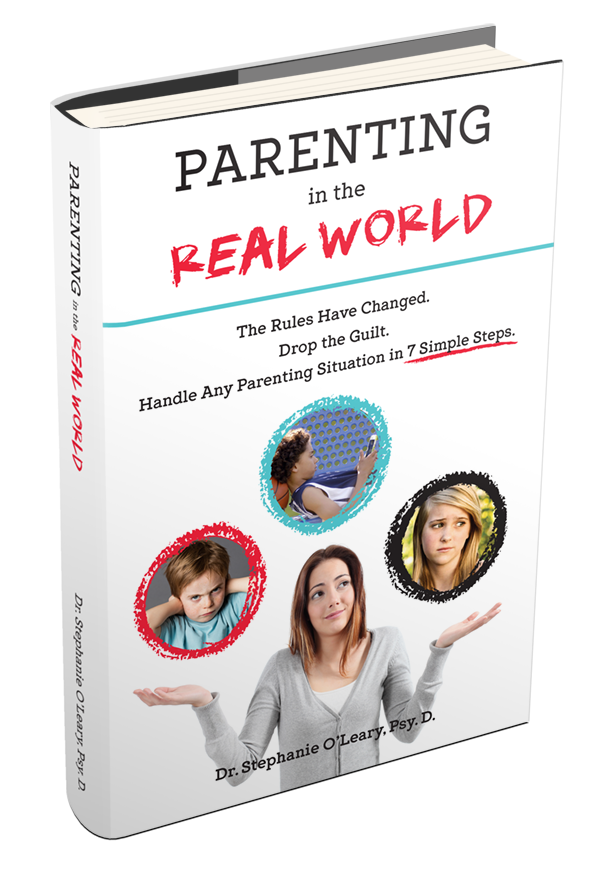|
One of my biggest pet peeves is asking my kids a question and hearing something along the lines of, “It wasn’t my fault!” As a parent, you may hear this statement blurted or exclaimed when you’re just asking an innocent question to gather information and figure out what’s going on. Or, the skirting of responsibility can come out during a more intense conversation where friends, teachers, and even you start to magically take blame for your child’s action or inaction (AKA: “My teacher never told me so it’s his fault!” or “Look what you made me do, now I’m crying!”). If seeing or hearing your child blame others and sidestep any accountability for a situation is a huge trigger for you, you’re not alone! And, it’s natural to be concerned. For starters, until your child acknowledges some degree of personal involvement in a situation, there’s no reason for him or her to participate in finding a solution. In order to help your child turn mistakes into invaluable life lessons, they have to see the situation more clearly and accurately. Thinking bigger-picture though, watching your child point fingers and look everywhere but in the mirror does not bode well for being able to succeed in the real world where it’s necessary to take ownership of missteps on a daily basis. If you’re ready to stop the blame game, here are five strategies that will help your child learn to take accountability: Praise Effort, Not Outcome. When your child feels pressure (often self-imposed) to get an A, score a goal, or be the best, there’s a tendency to look for outside reasons to account for disappointments, which often involve blaming someone or something. Focusing on your child’s effort, hard work, perseverance, and dedication sends the message that you value those traits and that you don’t necessarily need a reason (especially a blaming one) when things fall short. Under-react when your child owns his or her mistakes. Let’s be honest—it’s hard to hold back your reaction if and when your child shares an error in judgment or admits to being unwise. In order to encourage accountability, hold back when you want to jump in and offer and opinion or solution. Instead, listen with just a few head nods. This will prevent you from coming across as being judgmental and set the stage for your child to share in the future without fear of your response. For more tips on the Art of Listening, check out Chapter 1 of "Parenting in the Real World" HERE. Validate your child’s ability to take ownership—even if you don’t agree with their choices. When you do hear your child take ownership, even a small amount, try responding in a way that lets your son or daughter know you value their insight and appreciate them taking accountability. It can be a heartfelt smile or direct feedback along the lines of, “I know it’s hard to talk about things that didn’t go the way you wanted, I’m proud of you for sharing.” You can do this even if you don’t agree with what your child did (think, I’m happy you’re owning up to the fact that you copied your friend’s homework because you didn’t spend time on it the night before even though I totally disagree with that behavior). Own your mistakes. The most powerful and effective way to teach your child to take responsibility is to model that same behavior yourself. You’re always in the spotlight as a parent and each time you’re able to take ownership of a mistake or acknowledge that you could have handled a situation in a better way, you show your child the value of taking accountability. Avoid playing the blame game yourself. Take things a step further by trying to avoid pointing fingers and blaming others so your child does not copy those behaviors. This means biting your tongue instead of letting an, “It’s your fault we’re late!” slip out during the morning rush and quickly giving yourself a do-over if you do wind up making a blaming statement.
JOIN Dr. Stephanie on Facebook LIVE for a weekly Parenting Q&A
TUESDAYS @ 7:00pm (ET) CLICK the link. LIKE the page. Get parenting tips that work in the real world!
3 Comments
Kat
4/25/2017 10:48:05 pm
Loved reading this , some great straight forward advice thanks
Reply
Leave a Reply. |
Stephanie O'Leary, Psy.D.
Sharing practical strategies that help parents rediscover joy in their children (even when someone's crying, the phone is ringing, and it smells like the house may be burning down) Archives
October 2017
Categories |




 RSS Feed
RSS Feed